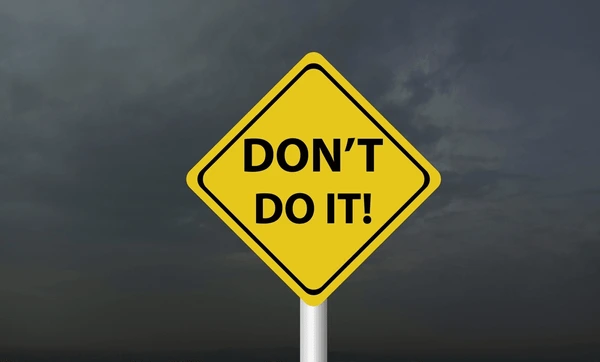Vietnam is a popular tourist destination because of its vibrant culture, breathtaking scenery, and delectable cuisine. But Vietnam has its own unwritten rules and manners, much like many other places with unique traditions and customs. These are some things you should not do when visiting this dynamic nation in Southeast Asia to guarantee a polite and easy encounter.
1. Never Undervalue the Influence of Salutations
Greetings are seen as an important aspect of social contact in Vietnam. It’s important to greet people nicely, especially elders, unlike in other Western societies where a brief “hello” could be sufficient. It’s customary to give individuals a polite handshake or a small bow of the head, and it’s important to address them by title if you know it (Mr., Mrs., etc.). It can come across as impolite or dismissive to ignore someone, so always try to greet people politely.
2. Avoid Making Finger Points
In Vietnam, pointing with your index finger at people or things is considered rude. It is interpreted as hostile or accusing. Use your entire hand with the palm facing upward or make a soft gesture with your fingers together if you need to draw attention to anything. This nuance prevents misunderstandings and demonstrates respect.
3. Show Respect for the Sacred Places
Vietnam is a nation with strong Buddhist traditions, and its temples and pagodas are revered sites of worship as well as popular tourist destinations. When visiting these locations, always wear modest clothing that covers your knees and shoulders. Never touch Buddha statues with your feet, and refrain from acting in a boisterous or disruptive manner. There may be restrictions on taking pictures inside temples, so before you take any, make sure to check for signs or get permission.
4. Avoid Making Public Expressions of Adoration
Vietnam is rapidly modernizing, but it is still a somewhat traditional country, particularly in the countryside. Public shows of affection, such hugs and kisses, are frowned upon and might make residents uncomfortable. Although holding hands is customarily allowed, it’s advisable to follow cultural standards by keeping your affections private.
5. Never Touch a Person’s Head
Like many other Southeast Asian nations, Vietnam considers the head to be the most sacred part of the body. It might be considered extremely insulting to touch someone’s head, especially if they are a youngster or an old. This cultural notion should always be kept in mind, and if you inadvertently touch someone’s head, you can make things right by offering a heartfelt apologies.
6. Refrain from Being Loud or Angry
In general, Vietnamese people value poise and composure, particularly in public areas. Disruptive actions, arguments, or loud voices might be interpreted as disrespectful. When dining in restaurants, going to markets, or touring temples, try to keep your voice down and don’t make any needless commotions. Additionally, it’s a good idea to be patient, particularly while interacting with bustling street vendors or in congested settings.
7. Refrain from haggling excessively
Vietnam’s shopping culture includes haggling, particularly in markets. But there’s a thin line separating conciliatory bargaining and combative haggling. Although haggling over a price is common, do so cheerfully and with a positive outlook at all times. Reducing the price too much could be interpreted as insulting to the seller, so proceed with caution. Additionally, it’s courteous to proceed with the purchase when a price has been agreed upon, instead of leaving the negotiation.
8. Avoid Taking Pictures of Military Structures
Vietnam remains a communist republic with some limitations on national security. Refrain from taking unauthorised images of government buildings, military people, or military buildings. You could run into major issues with the law if you do this. It’s best to err on the side of caution and not take any photos if you’re not sure if photography is permitted in a given location.
9. Never Place Your Chopsticks in a Bowl Alone
In Vietnam, chopstick etiquette is very important. It is quite improper to leave your chopsticks sticking up in a dish of rice since it looks like the incense sticks used at funerals or as a way to remember the deceased. Alternatively, place your chopsticks neatly on the bowl’s side or, if one is available, on a chopstick rest. Additionally, refrain from pointing with chopsticks at someone or waving them around when conversing.
10. Don’t Assume That Everyone Speaks English
Even while more people in Vietnam are speaking English, especially in larger cities and popular tourist destinations, not everyone speaks it fluently. Particularly in rural places, don’t assume that everyone will understand English. You may show respect and make your journey go more smoothly by learning a few basic Vietnamese phrases like “xin chào” (hello), “cảm ơn” (thank you), and “xin lỗi” (sorry).




